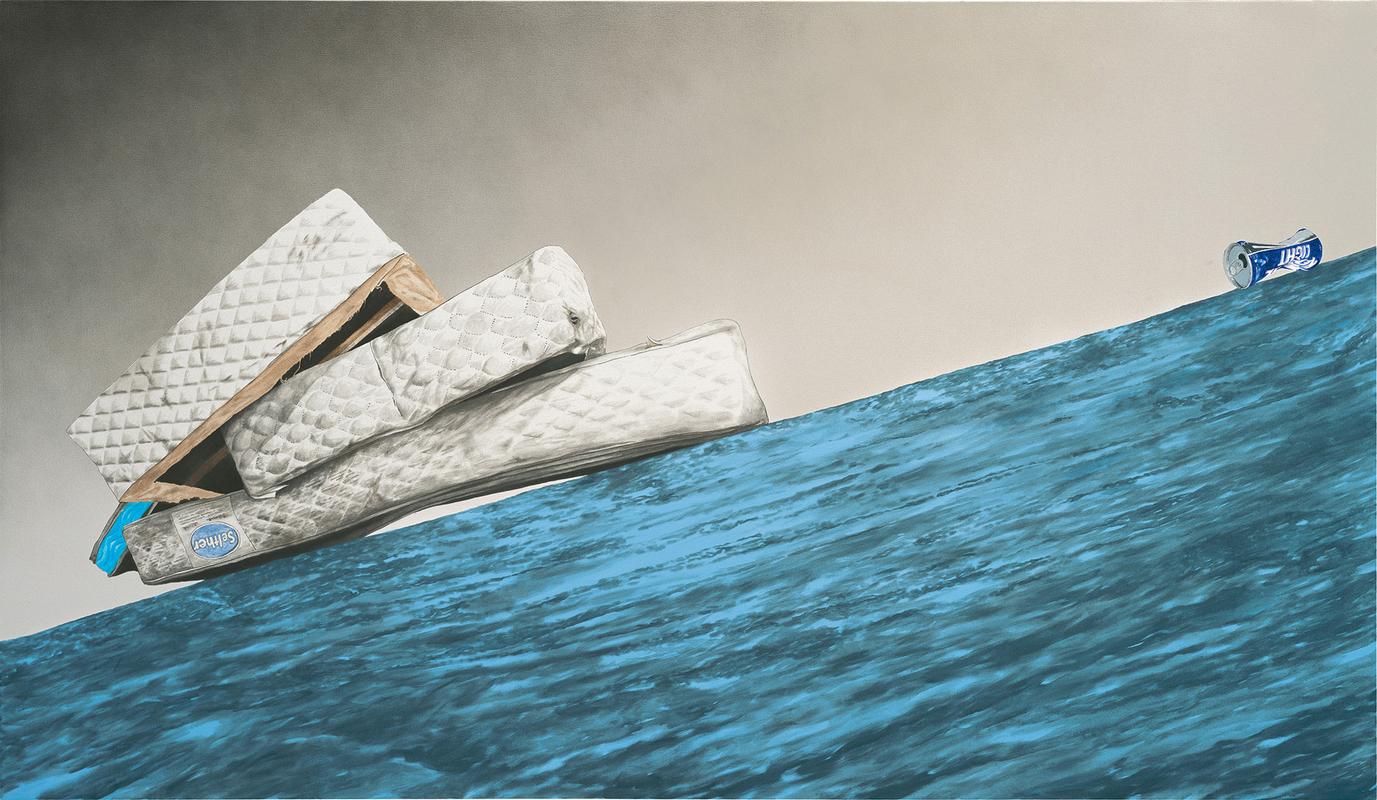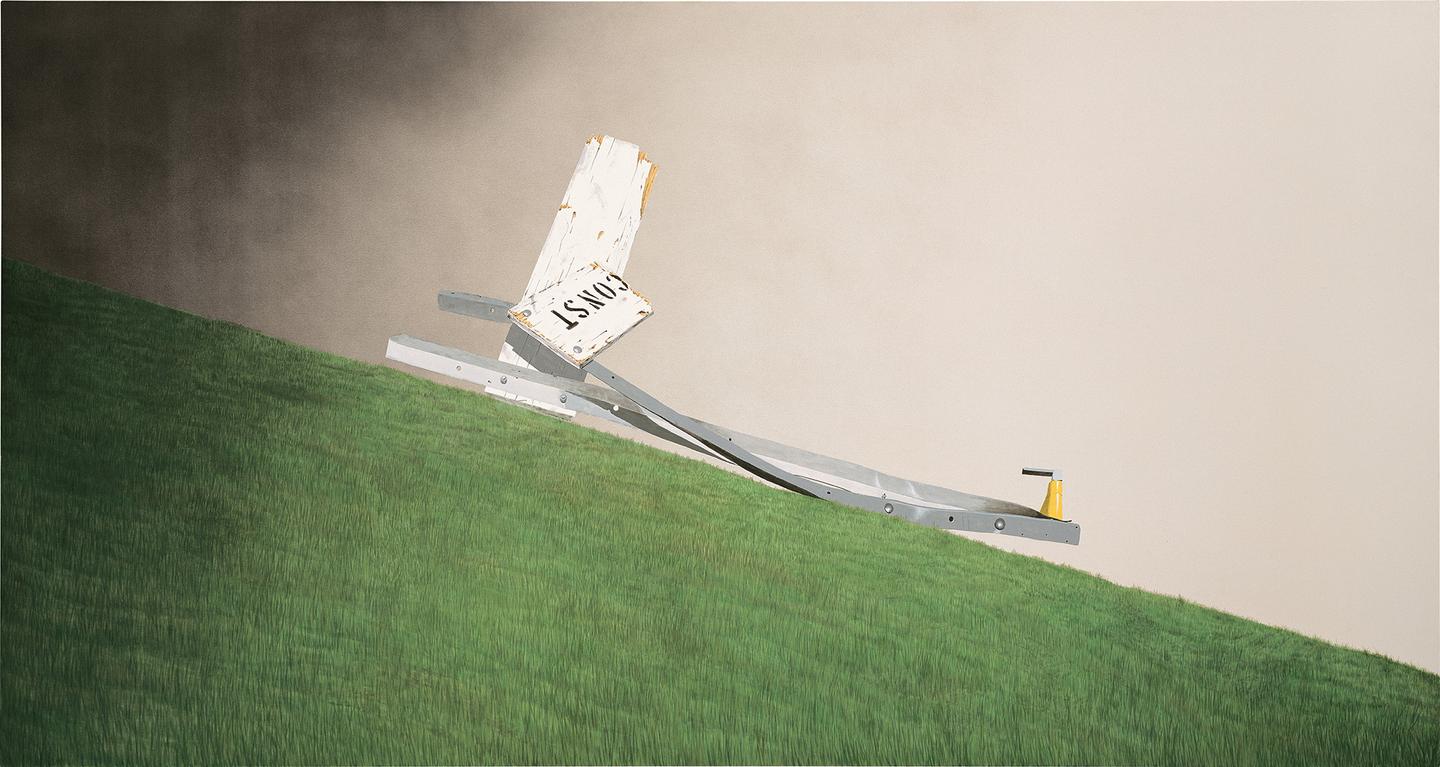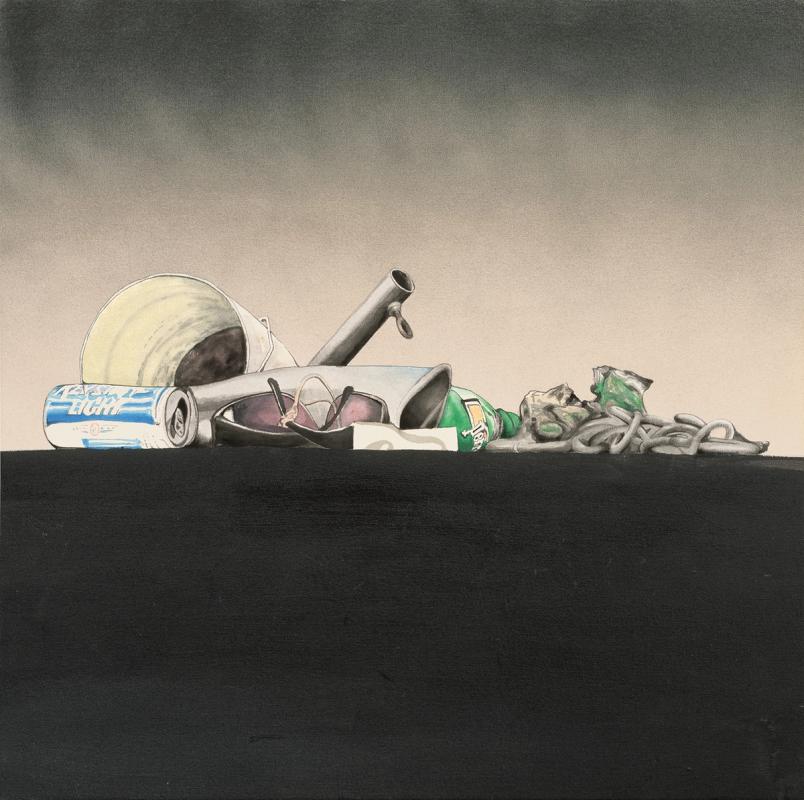Ed Ruscha's "Psycho Spaghetti Westerns" series, showcased in his 2011 exhibition at the Gagosian Gallery in Beverly Hills, represents a fascinating exploration of themes surrounding deterioration, memory, and the American landscape. This series marks a surreal extension of ideas Ruscha previously engaged with in his "Course of Empire" series, which itself drew inspiration from Thomas Cole's Hudson River School paintings depicting the rise and fall of a landscape over time. Like Cole, Ruscha is interested in how landscapes evolve, but his focus is on the empirical and metaphorical effects of time on these spaces, exploring concepts of "waste and retrieval."
The "Psycho Spaghetti Westerns" consist of wide, horizontal paintings that feel cinematic, almost as if they are capturing stills from a broader narrative. Each piece juxtaposes an abstract, sfumato backdrop against a more tangibly depicted foreground, often filled with everyday detritus like tire shreds, beer cans, and discarded mattresses. This contrast serves not only as a visual technique but also metaphorically underscores the transient nature of human presence and the resilience or vulnerability of natural and constructed environments.
Ruscha's work frequently navigates the interplay between the visual and the verbal, bringing the American vernacular into a dialogue with the landscape. This series is no exception, as it pushes viewers to reflect on the broader implications of consumption, waste, and the passage of time. Despite the specific focus on American symbols and landscapes, Ruscha's themes resonate on a global scale, addressing universal concerns about environmental decay and cultural memory.
This artistic exploration aligns with Ruscha's broader oeuvre, which often examines the evolving American landscape and its cultural symbols, from Hollywood logos to gas stations. His work in "Psycho Spaghetti Westerns" distills complex relationships between language, imagery, and landscape, offering a nuanced critique of contemporary life through the lens of seemingly mundane scenes. Through meticulously detailed representations of roadside detritus and landscapes, Ruscha invites contemplation on the transformation and decay inherent in the passage of time and the impact of human activity on the environment (Gagosian) (Gagosian Shop).


